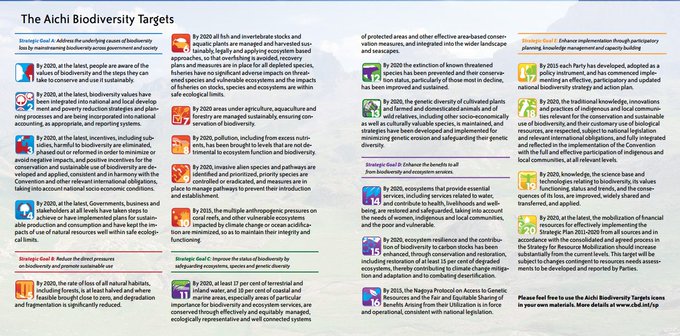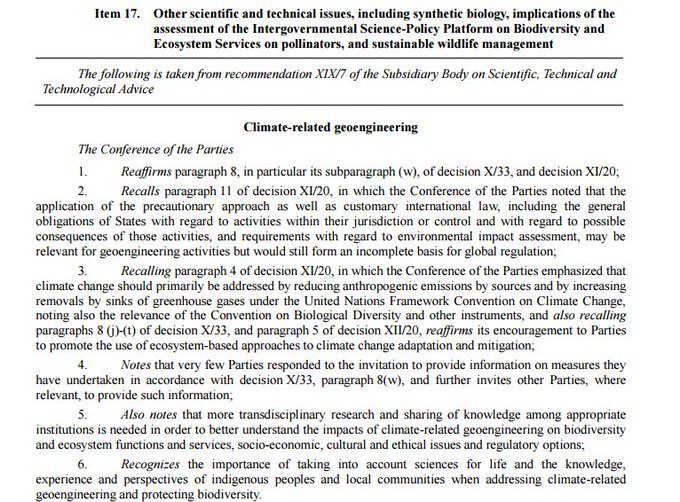There’s a secret UN climate summit taking place in Mexico
Ed King
UN biodiversity chief tells Climate Home protecting and restoring ecosystems is the best way to protect the world from dangerous levels of global warming.
There’s a UN climate change meeting involving nearly 200 governments taking place right now in the Mexican holiday resort of Cancun.
It’s not making many headlines, but then the biannual UN Convention on Biological Diversity (CBD) conference rarely does. Especially not in a year like 2016.
And that’s a pity, because at stake is the air you breathe, the trees that surround you and the fate of the earth’s 8.7 million species of flora and fauna.
Also at stake is the ability of communities across the world to cope with erratic weather patterns linked to climate change like flash flooding, acidifying oceans, drought and storms.
“Everything is inter-linked,” says Braulio Ferreira de Souza Dias, a former Brazilian government official who has been executive secretary of the CBD since 2012.
“If countries want to meet the Paris climate agreement and the sustainable development goals in 2030 they also need to make progress in biodiversity.”
That means slowing and then reversing deforestation so there are more trees to suck up carbon emissions from fossil fuels, and managing wetlands that can act as a buffer against storm surges.
It means working out how countries can better manage livestock and look after fish stocks so species can be supported if their habitats are damaged or waters become too acidic.
“Unless we can do a better job we won’t make it,” says Dias, who argues that countries and businesses are – eventually – starting to understand why biodiversity matters.
The Brazilian leaves his role after this meeting, but he wants governments to understand that building walls as protection – no Trump pun intended – is not going to crack it.
Consumption pains
Instead he advocates what CBD wonks call ecosystem-based adaptation, sustainable landscapes where farmlands also act as resilient barriers against the worst climate change can deliver.
That means fewer huge single-crop farms, more trees, better water conservation and the active restoration of exploited and abandoned lands.
It means rethinking consumption patterns, tougher regulations on extractive industries and curbing the poaching of wildlife populations.
Progress on this has been slow, he admits, and the facts bear him out. From 1970 to 2012, populations of fish, birds, mammals and reptiles fell 58% said WWF in its 2016 Living Planet report.
“Lose biodiversity and the natural world, including the life support systems as we know them, will collapse,” WWF International head Marco Lambertini warned earlier this year.
Follow
Countries are not on track to meet UN's 2020 biodiversity targets, @CBDNews chief tells @edking_CH
That’s not to say nothing is happening. In 2011, CBD member states agreed to the Aichi Biodiversity Targets: 20 goals to be met by 2020 that could stabilise global losses.
Virtually all have a component that involves climate change, be it a requirement to boost environment education levels, to halve the loss of natural habitats and the goal of restoring 15% of degraded ecosystems so nature can thrive.
Still, it’s not happening fast enough. “We’re not fully on track,” Dias says, arguing that the goals were deliberately challenging so as to keep governments honest.
“At our last conference (2014 in South Korea) we recognised progress but said efforts so far are insufficient to ensure we will meet all targets by end of decade.”
One problem is too many governments and international organisations work in “silos” he says, a familiar message but one he says is essential to drum into leaders.
For example, farming or extractive ministries may not realise their government has afforestation commitments, while finance ministries may offer incentives to ecologically damaging practices.
Only 15% of the CBD’s 195 parties have whole-of-government policy approaches, and without any move towards what he terms “mainstreaming” the battle to protect biodiversity could be lost, the result as much of isolated technocrats as a deliberate desire to harm the planet.
“The big concern is that the main drivers of biodiversity loss are too strong – such as population growth, consumption, pollution and climate change. It’s an uphill battle,” he says.
Follow
UN's #COP13 biodiversity summit draft decision on #geoengineering - story to come on Wednesday
The bottom line is – as ever – money, and it’s a mixed outlook.
A goal to double international biodiversity-related financial flows to developing countries was met in 2015, while the UK, Australia, Canada, Japan, Germany and Sweden are among those praised by the CBD for supporting 129 delegates from poorer countries to attend the summit.
Maintaining those levels of funding is an “outstanding challenge” Dias told the COP13 conference earlier this week.
The combined impact of a Donald Trump presidency, the continued aftershocks from the financial crisis, Europe’s concern over immigration and pressure for funds to flow to climate projects may hurt.
The CBD is financed through from the Global Environment Facility (GEF), an international body that itself gets the bulk of its cash from the US, with negotiations on the replenishment of its trust fund to start in 2017.
The UN hopes the GEF will deliver $2.739 billion and leverage a further $5.938bn from 2019-2023. “Certainly the new president can influence decisions that the US makes regarding funding… but it’s too early to assess that,” says the CBD chief.
As for his successor, he reckons forests will likely dominate his inbox, and the trends do not make for good reading.
Since 1990, an area the size of South Africa has been lost, and while rates of tree loss are slowing they are not stopping. Even Brazil recently experienced an upsurge in the destruction of the Amazon after years of positive progress.
“We need more attention to reduce deforestation… overall Brazil has had a good reduction – other areas like Indonesia are more challenging with the burning of peatlands. It’s a big issue we need to push countries to control.”



